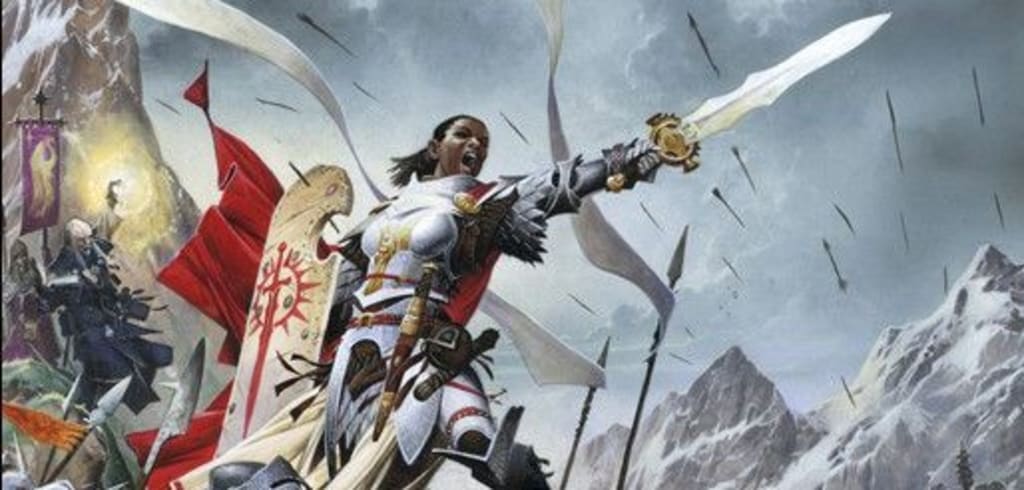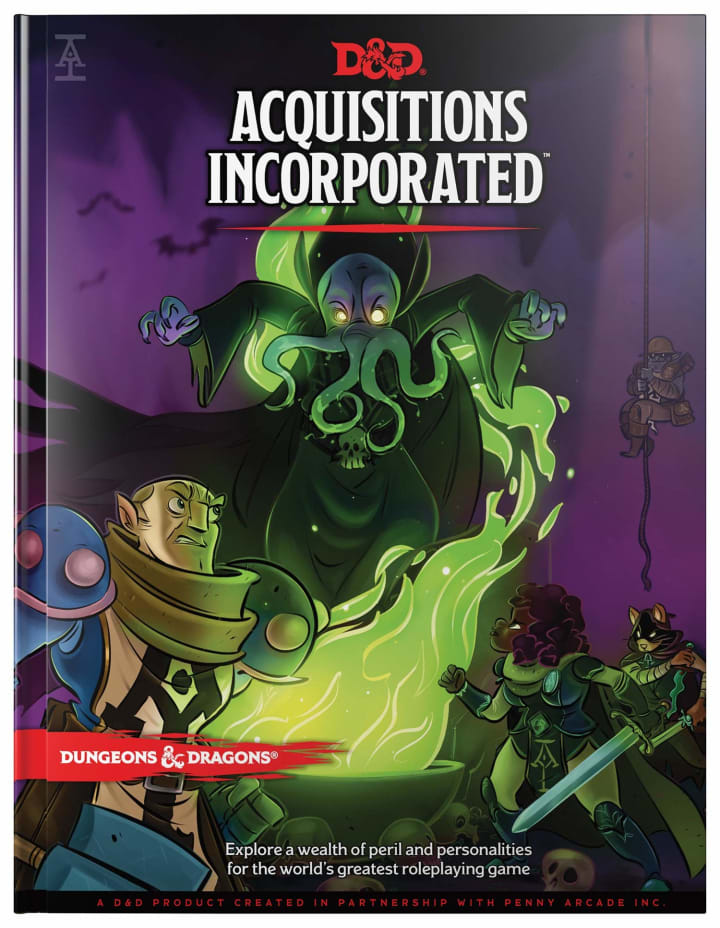Dungeons and Dragons at the Office
Are you playing Dungeons and Dragons at work? You should be. Studies have shown that tabletop role playing games enrich work skills and emotional intelligence.

Looking for a low-cost, high-impact team building exercise that is also fun and popular? Look no further than your local game store. Many recent studies have shown that games like Dungeons and Dragons not only provide adolescents with hours of fun but also quantitative changes in behavior. Raul Gutierrez, in his CSU San Bernardino thesis entitled “Therapy & Dragons: A look into the Possible Applications of Tabletop Role Playing Games in Therapy with Adolescents”, (2017) cited a study that showed a significant impact on the behavior of participants. Gutierrez asserted that with minor alterations to RPGs, they can be tailored to many different types of clients and participants for therapeutic purposes. Tabletop RPGs can provide your workforce with an excellent team building exercise, encourage creative problem solving, and foster emotional intelligence.

I’m sure that most employers would balk at the notion of allowing employees to play a game when they should be working. The simple rebuttal to this admittedly valid concern is to suggest it be voluntary and done after working hours. The planning and creation of this group is just the first of many team building exercises.
Once play begins, coworkers naturally learn more about each other and develop lasting bonds. They will also grow quite attached to each other’s characters in their collaborative storytelling experience. A character is the player's in-game persona, this character is the person who takes the actions that the player describes and the gamemaster (another player who presents scenarios, interprets the rules, and keeps the game moving) adjudicates those actions through the agreed upon rules. Players must also learn to work together and trust one another to help achieve the group's goals. These skills translate from the game to behavioral changes in youth, as noted by Gutierrez. By extension, coworkers who are active and engaged in this kind of play quickly learn to adapt and overcome problems in a fluid work environment.
It’s not only groups that thrive in this environment. Individuals gain confidence, social skills, and learn to think on their feet. Just as the group adapts to the challenges, so do the players learn to apply their skills and knowledge to various situations. Each player will quickly learn their character’s strengths and their role in the group. Players will also learn to try alternate solutions and think outside of the box as the gamemaster works with the player to narrate the results of their efforts and actions. While discussing the situation with the gamemaster, a player must clearly communicate and in many cases collaborate with others, practicing important social skills. During these types of interactions, players gain the confidence to make decisions and take actions within the safety net of it all just being within the game. The consequences of choices only apply to the character, not the player, allowing that player to learn vicariously through their character. Leaders and supervisors will begin to reap the benefits of managing independent, autonomous employees.
Tabletop games innately teach emotional intelligence to players. Emotional intelligence is the ability to manage your own emotions and to understand the emotions of others. This is a very complex topic but for the purpose of defining the benefits of tabletop RPGs we return to Gutierrez. Games like Dungeons and Dragons teach many components of emotional intelligence; including but not limited to empathy, self awareness, and self regulation. He explains that a therapist acting as a gamemaster can mold the game in order to achieve a behavioral goal. The narrative of the game is infinite and the therapist can immediately determine the outcome of an action so the player easily associates the deed with the consequences. This causes the player to consider how their actions affect others and possibly confront some of the reasons why they feel compelled to act that way. This kind of interaction trains people to be more mindful of others, builds character in the player, and strengthens bonds between participants.
The best part is that it’s not as complicated as one might expect to initiate this at your own workplace. A small conference room, a few hours after work, some books, dice and some characters is all that’s needed. The best part? Most of this can be gotten for free. If you happen to have employees who already play, they might be willing to lend their skills and supplies. Failing that, there are free dice apps for RPGs on mobile devices along with character sheet apps. D&D Beyond is the most popular of these and it’s free to use for the most basic experience. The expansions available for purchase are not required to play the game. If a play space is unavailable or players are too far apart geographically for an in person game; there are plenty of websites that allow virtual play so you can connect with players all across the world. The three most popular of these are Roll20, Foundry, and Fantasy Grounds; and they are all free for the basics needed to play, including virtual character sheets, dice rolling apps, maps and tokens.
Though tabletops RPGs started as a fairly niche hobby, the Covid 19 pandemic caused an explosion in sales for games like Dungeons and Dragons. People quickly became starved for social interaction and games like these satiated that need. It also brought about a resurgence in the number of academic studies about the potential of such games for enriching and therapeutic uses. Tabletop RPGs are one of the newest and most impactful social learning activities that corporations are using to cultivate healthy, happy employees.
About the Creator
Jeromy Schulz-Arnold
Jeromy Schulz-Arnold is a freelance writer. He has a day job but he spends an irresponsible amount of time daydreaming...
Enjoyed the story? Support the Creator.
Subscribe for free to receive all their stories in your feed. You could also pledge your support or give them a one-off tip, letting them know you appreciate their work.






Comments
There are no comments for this story
Be the first to respond and start the conversation.